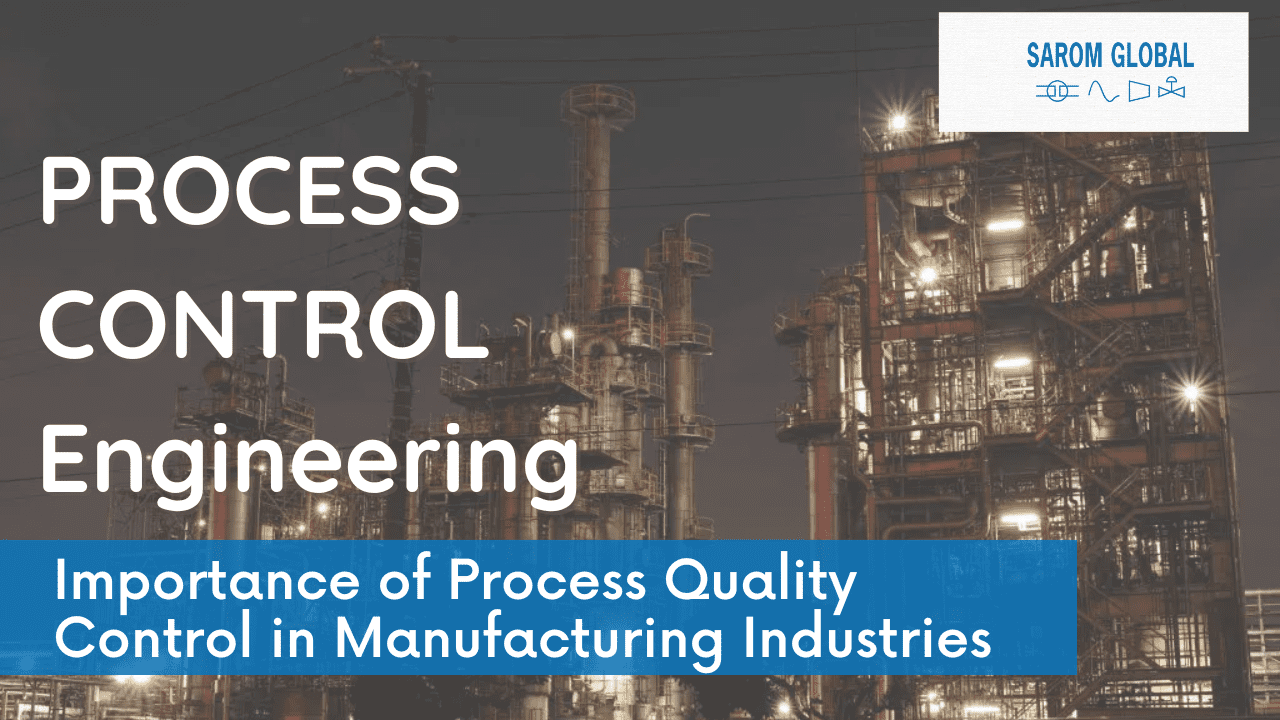
Process control is a vital technique with relevance to industrial processes that requires comprehensive understanding. It involves a series of systematic steps and measures that manufacturers undertake to monitor and optimise their production processes. In this article, we will explore into the objectives, techniques and significance of process control in manufacturing and how it enhances product quality, efficiency, and customer satisfaction.
Primary Objectives :
1. Stability: Ensuring the consistent operation of the system without unpredictable fluctuations.
2. Optimization: Maximizing process efficiency to achieve the desired output while minimizing waste and resource consumption.
3. Safety: Preventing hazardous conditions and maintaining operations within safe limits.
4. Quality: Ensuring consistent and acceptable product or output quality.
5. Flexibility: Adapting to varying conditions and demands efficiently.
To achieve these objectives, various Process Quality Control techniques are utilized, including:
1. Feedback Control: This is the most commonly used form of processing control engineering. It involves continuously measuring the process output and comparing it to a desired setpoint. Any deviation between the actual output and the setpoint triggers corrective actions to bring the process back to the desired state. Proportional-Integral-Derivative (PID) controllers are commonly employed for feedback control.
2. Feedforward Control: This type of control anticipates disturbances in the process and takes proactive action before they affect the output. It relies on a process model and knowledge of potential disturbances to adjust the process inputs accordingly.
3. Cascade Control: Cascade control employs multiple control loops, where the output of one loop affects the setpoint of another. This approach enables precise and efficient control, especially in processes with interacting variables.
4. Multivariable Control: For processes with multiple interconnected variables, multivariable control techniques are used to optimize the entire system simultaneously, taking into account interactions between variables.
5. Model Predictive Control (MPC): MPC utilizes mathematical models of the process to predict its behavior and calculate optimal control actions over a future time horizon. It is particularly useful for systems with significant process delays and complex dynamics.
6. Advanced Control Techniques: This involves the use of sophisticated control strategies and algorithms to continuously optimize the process
Its Significance:
Skilled engineers play a critical role in ensuring reliable and efficient operation of industrial processes, leading to increased productivity, reduced costs, enhanced safety, improved product quality and so on.
- Enhances Product Quality
Process quality control provides an effective means of assuring product quality. By employing strict checks and inspections throughout the manufacturing process, manufacturers can detect potential flaws early and prevent them from reaching consumers – thus decreasing recall risks, customer complaints, and brand reputation issues.
- Ensures Consistency and Uniformity
Consistency in product quality is essential for building customer trust and loyalty. Process quality control establishes standard operating procedures and guidelines that every manufacturing step must adhere to. This results in uniformity across production batches, ensuring that each product leaving the assembly line meets the same high-quality standards. Consistent product quality fosters customer satisfaction and encourages repeat purchases.
- Reduces Production Waste
Effective process quality control helps minimise production waste. By closely monitoring raw materials and the manufacturing process, manufacturers can identify inefficiencies and deviations promptly. This enables them to take corrective actions to reduce material waste, optimise production cycles, and ultimately cut costs. Waste reduction not only benefits the company’s bottom line but also contributes to a sustainable manufacturing ecosystem.
- Enhances Efficiency and Productivity


- Meets Regulatory Compliance
Compliance with regulatory standards is of utmost importance in manufacturing. Failure to do so could result in heavy penalties, legal complications, and irreparable damage to a company’s reputation. Process quality control ensures manufacturing practices align with industry regulations and international quality standards, protecting them from possible legal or financial troubles.
- Facilitates Continuous Improvement
Process quality control is not a one-time activity but an ongoing improvement process. By analysing the data gathered during inspections and quality checks, manufacturers gain invaluable insights into their production processes’ strengths and weaknesses, helping them make informed decisions regarding process improvements to boost productivity levels and product quality.
- Enhances Customer Satisfaction
In any business, having happy customers is super important. And one way to keep them happy is by delivering high-quality products. That’s where process quality control comes in. It means making sure that the things you make consistently meet or exceed what your customers expect.
When customers get reliable and great products, they trust your brand and become loyal fans. This leads to positive word-of-mouth and good reviews, which help your business’s reputation and bring in new customers. So, focusing on quality control is a win-win for everyone!
Conclusion
Process quality control is crucial when it comes to manufacturing. Its role cannot be overstated since it ensures that products adhere to high-quality standards. This leads to reduced waste, enhanced efficiency, and, most importantly, satisfied customers.
Manufacturers who integrate process quality control into their operations gain a sustainable and competitive edge in today’s ever-changing marketplace. The key here lies in cultivating a culture of continuous improvement through process quality control. This enables manufacturers to thrive and deliver top-notch products that create a lasting impact on customers. As a result, this fosters customer loyalty and propels business growth.
It’s worth mentioning that adopting process quality control isn’t merely about meeting industry standards; it’s a strategic decision to deliver excellence and build a robust brand that stands the test of time.
How SAROM GLOBAL Can Help Industrial Manufacturing Plants With Process Quality Control?
At SAROM GLOBAL, we specialise in supporting manufacturing plants with top-notch process quality control solutions. Our expert team is dedicated to ensuring your products meet the highest quality standards and customer expectations.
We implement rigorous inspections and data-driven analyses throughout your production processes to identify potential defects early on, reducing wastage and enhancing efficiency. With our systematic approach, we help you achieve consistent product quality, comply with regulatory standards, and foster customer satisfaction.
Let SAROM GLOBAL be your trusted partner in streamlining operations, optimising workflows, and driving continuous improvement for manufacturing excellence.
